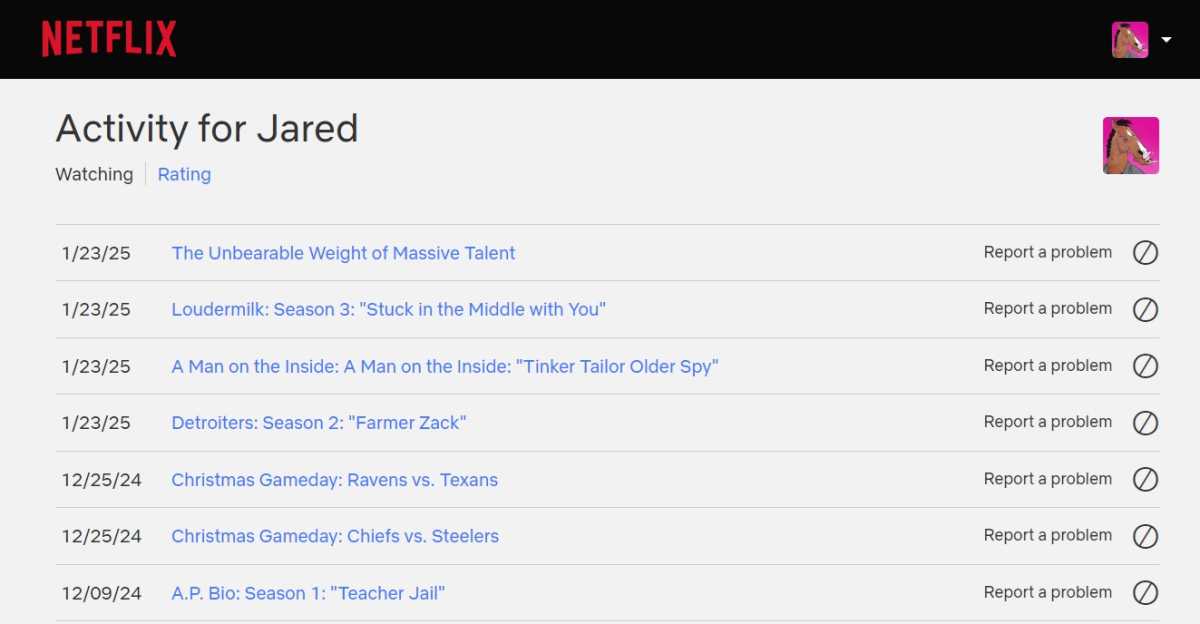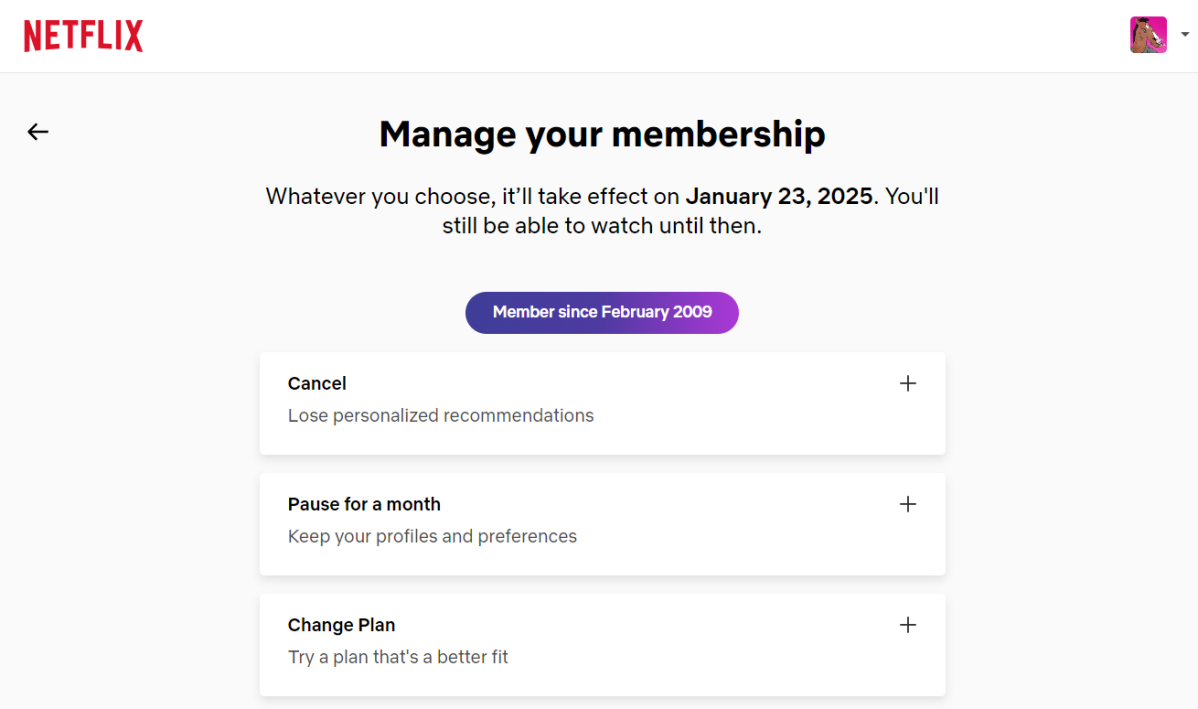Netflix is metaphorically flexing its muscles and spiking the football this week, announcing both record fourth-quarter subscriber gains and price hikes for nearly every one of its plans.
In other words, the streaming giant has you right where it wants you. It’s the world’s most popular paid streaming service, with cancellation rates well below industry averages. Its crackdown on password sharing has been a resounding success, and its foray into ad-supported streaming is boosting revenues. As it dumps money into more expensive sports programming—like those Christmas NFL games—it’s confident you’ll help pay the bill.
Hence the price hikes: The Standard with Ads plan is now $8 per month, up from $7. The Standard no-ads plan is now $17 per month, up from $15.49. And the Premium plan with 4K video is now $25 per month, up from $23. The only plan that isn’t increasing is the optional $7 surcharge for adding an authorized password sharer to your account.
What can you do about it? While Netflix believes most everyone will stay put, price hikes are always a fine time to reevaluate the value of a subscription. Here are some pointers:
Check your watch history
Netflix’s website contains a list of everything you’ve watched. To find it, log into your account, click the profile icon, select “Manage profiles,” choose a profile, then select “Viewing activity.” (If you’re signed in, you can also visit netflix.com/settings/viewed.)

Jared Newman / Foundry
Look through everything you’ve watched in the past few months or so. How often do you use Netflix, and how many shows have you thoroughly enjoyed? Are there enough of them to justify keeping Netflix year-round, or could you take some time off and allocate that viewing to other services with shows you’ve been meaning to watch?
Look elsewhere for favorites
Netflix mostly traffics in exclusive content, and the shows that bring in new subscribers tend to be the ones you can’t find elsewhere. But some of the staples keeping you onboard might not be exclusive to Netflix.
Suits, for instance, became a Netflix hit, but debuted on USA Network and is available in full on Peacock (which you can currently get free for three months). My kids are currently binge-watching Avatar: The Last Airbender, which also streams on Paramount+ (obtainable for free as well). And while Netflix has the exclusive streaming rights to Seinfeld, it’s also a staple on free over-the-air TV, which you can watch with an antenna (and even record for later). Netflix also licenses a bunch of HBO shows that remain available on Max.
I’m cherry-picking here, and I realize a lot of shows become popular because they’re on Netflix—not the other way around—but it’s worth looking at some of your favorites on a site like Reelgood to see where else they’re available, if at all.
Consider your family
Dropping Netflix might be easier if you’re on your own, but I know it’d be a tough sell in the Newman household, where my wife and kids make more extensive use of it. You might want to have others in your home consult their own watchlists before making any rash decisions.
The good news is that you no longer need to account for people outside of your home. With Netflix having banned password sharing—at least without paying an extra toll—the service isn’t quite as sticky as it used to be.
Look at some free alternatives
If Netflix for you is mainly something to put on in the background while doing other things, there are lots of free streaming services to fill that void. Tubi, Pluto TV, Plex, the Roku Channel, and many others offer vast catalogs of free movies and shows, with linear channels you can flip through. The free tiers of Sling TV and Philo even include a DVR, so you can record shows and skip the ads.
Just try cancelling

Jared Newman / Foundry
The easiest way to tell whether Netflix is worth keeping is to try going without it for a while. All it takes is a trip to Netflix’s membership page and a click of the cancellation button (plus another click to confirm).
There’s no penalty for cancelling a Netflix subscription, nor are there any rewards for continued loyalty. When you cancel, Netflix keeps your account info on file for 10 months, so your watchlist, recommendations, and viewing history will still be waiting if you resubscribe anytime before then.
If you can’t quit
Netflix has a unique gravitational pull in the streaming world, so it’s understandable if you can’t break away, but at least consider some ways to defray the cost:
- If you’re mostly keeping Netflix for your children, consider downgrading to the ad-supported tier. Kids profiles don’t have ads.
- Netflix’s ad-supported tier is included for free with some T-Mobile postpaid plans, including all of its current “Go5G” offerings. According to TMo report, customers who upgrade to an ad-free tier will still get a $7-per-month credit (which means the price hikes will still apply).
- Verizon offers a $10-per-month bundle of Netflix and Max (both with ads) with certain mobile and home internet plans. You can upgrade to ad-free Netflix by paying the difference in price.
- Comcast offers a $15-per-month bundle of Netflix (with ads), Apple TV+, and Peacock (with ads) for customers with Xfinity home internet or TV.
You can also look for savings on other streaming services or consider cancelling some of them instead. In the end, Netflix seems pretty confident that’s the path its subscribers will take.
Sign up for Jared’s Cord Cutter Weekly newsletter for more streaming TV advice.




